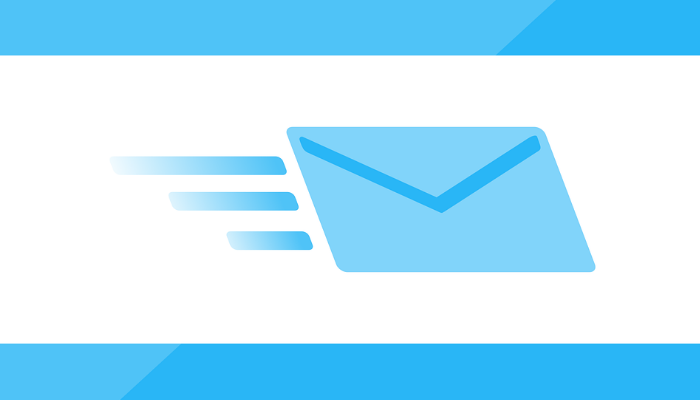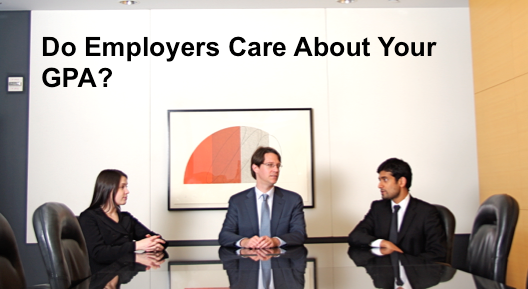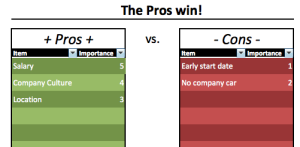
Everyone faces this problem at some point, so I want to share the tips I use to email busy people and get a response.
Why is hearing back from important people an issue?
The sheer number of emails being sent has something to do with it. The Radicati Group found that 269 billion emails are sent daily in 2017 and 2.4 million emails are sent every second.
Are you kidding me? That’s wild.
But in my experience, it’s not just the quantity of today’s email marketing that leads to low response rates, it’s also the poor quality.
Most people write awful emails where they ramble on and on, have no clear purpose for emailing, and demand a response they frankly don’t deserve based on how they wrote their vague email.
For example, busy people have no time for emails that look like this:
Subject line: Please help!
Hey Brian,
I saw your blog and I really need help. My dad wants me to become an engineer but I want to be an artist. Sculpting has always been my passion but there are no sculpting jobs where I live in Nebraska.
I think I need to move to Austin, Texas. Do you think I do?
I hope you’re the person to help me with my problem and difficult future. Right now I just don’t know what to do and I’m frustrated.
But it’d be easier to talk about this on the phone. It’ll be worth your time. I look forward to talking.
Best regards,
David Silva
Do you notice the weaknesses in this email? I’ll lay them out for you:
- Subject line doesn’t stand out or convince me to read the email. (A better one would be more specific and descriptive of what he’s going to tell me in the email.)
- He doesn’t introduce himself so I have no idea how about his age, current position, education, skills, and financial status.
- The entire email is vague and it requires me to assume or ask him details, instead of using that valuable time to respond if it were a specific email.
- He’s asking me to decide his future and putting the work on me. Again, not enough information for me to decide (and I probably wouldn’t tell someone what career decision to make even if I had all of the information).
- I have little incentive to help him because he didn’t persuade me he did his homework.
- The closing assumes that we’re actually going to talk. I don’t appreciate that.
The burning problem is the people you want to email the most are the busiest and least likely to respond.
Just imagine how many random and pointless emails you get during the week.
And then consider a busy CEO, key decision maker, or author’s inbox. Odds are they’re getting about 10 to 100 times as many emails as you.
So what are you going to do?
You can give up and miss out on all the knowledge and connections that could stem from a few emails with a power player.
However, I recommend you master these six tips for emailing busy people so you can cut through the noise and stand out.
[activecampaign form=3]
How To Write Better Emails
1. Keep it short
Again, these are busy people we’re dealing with. They have a tremendous amount of work responsibilities on their plate and no time for long-winded emails.
Not to mention your email is potentially cutting into their little free time to spend with their spouse and kids, exercise, or their favorite hobby.
You need to keep your email short and to the point if you want any chance at a response. All you need to communicate is who you are, what it is you do, and why you’re emailing.
Also, it’s good practice to only have one question in your email. The more questions you include, the more work you require of them, and the less likely you get a response to a single question.
Keep this initial email short and sweet.
2. Introduce yourself and what you do
Keep this simple by saying your name and your occupation (sentence one), and what you’re working on (sentence two). That’s it!
For example, “Hi Max, My name is Brian Robben and I’m an entrepreneur and author. This spring I launched my new digital marketing company X that focuses on telling local businesses’ stories and growing their audience.”
Some people go right into their ask without every introducing themselves. That feels strange on the other side and it’s a bad move.
So don’t tell your life story, but introduce yourself in two sentences and then move on.
3. Acknowledge the power-dynamic
When you’re asking for help from someone, you’re lower than them on the power index.
You need something from them. They’re not asking you for something, so act like it in your email.
One way to do this is to compliment them.
Congratulate them on their latest book, major accomplishment, or press spotlight. (This information is an easy Google search away.)
People love being praised no matter how famous they get. And this breaks the ice, so to speak, in your email.
Another way to respect their time is to give more effort writing the email than you ask them to read or do.
Your writing should be extra clear and concise, so it’s easy for them to understand who you are and what it is you want.
4. Show you’ve done your homework
The absolute, worst, terrible, most egregious mistake is to ask a question that is one Google search away.
It’s also bad if you ask for advice on a topic they’ve already written or spoken about in depth.
You’re just wasting their time and your time if you don’t do your homework in advance.
And you’ve almost mathematically eliminated your chance at hearing back from them, since laziness doesn’t persuade top achievers to respond.
But people are much more willing to help those who have put time and energy into helping themselves.
In your email, include a short paragraph (2-3 sentences) specifically explaining what you’ve done leading up to this point and (or) what you’ve learned.
For example, if you’re asking your friend’s dad to help you get your dream job, make the process easier for him by:
- Communicating your selling points and the value you will bring to this company if hired
- Telling him your work experiences and a bullet point list of what you’ve learned from each
- Clearly explaining why you want to work at this company
- Attaching your resume and cover letter
5. Make a clear call to action
You have to communicate a specific ask that is clear and easy for the reader to digest and respond to.
Again, when you make them to do the work to understand what you are asking for, you significantly lower the odds they will reply. Help them help you with a clear ask.
These are some examples of specific asks:
- Are you available for a 10-minute phone call this week so I can pick your brain?
- I also live in Chicago and I’d love to buy you a coffee to briefly discuss my job search. I’m free to work around your schedule all day Wednesday, Thursday, and Friday. What day and time works for you?
- Knowing about our 14,000 email subscribers and $70,000 per year online business revenue, what’s the next step you would take to grow this operation based on your experience?
- From the data I shared, do you know any investors who would be interested in purchasing equity in my startup?
In the midst of doing writing with concision and being prepared, don’t think you can’t be bold. You certainly can be if it’s written the right way.
6. Give the reader an out
Remember the power-dynamic, you want something from them. They owe you nothing. Treat it that way by giving them an out to not respond or help.
Ironically, acknowledging their busyness and lack of time is the exact close that gives you a better shot of getting a piece of their time in a response.
So you must communicate that you understand if they can’t respond in-depth or can’t reply at all because of their hectic schedule.
That’s the way it has to be. Because you being a considerate and genuine human will win over more responses than anything else.
Nice guys finish first in this arena. You should never ask someone for a favor and then demand their help.
Here are a few examples of closing paragraphs with an out for the reader:
- I hope we can connect but I completely get it if you have too much going on.
- If you don’t have time that’s not a problem. Keep doing your thing and continuing to inspire millions of people like me.
- I can work around your schedule anytime this week and next week to make the 5 minute call happen. But if you’re too busy that’s no problem and I appreciate all you’ve done for me.
Then end it with a respectful ending such as, “Thanks in advance,” or, “I really appreciate your consideration of this,” and sign off with your name.
That’s how you write an email that produces an extremely high open rate compared to average.
My Email Asking For A Recommendation Letter
You can see that these six steps are on full display in my email where I asked a Miami University professor to write a recommendation letter back in the fall of 2014 (see this article if you need help securing recommendations).
Subject: I’m applying to law school — hoping you’ll write a reference
Hi Professor H.,
I hope you are doing well. I’m a little disappointed that I don’t have you as a professor this year, but I plan to stop in and say hello to make up for it.
I’m applying to law school next year and I was wondering if you’d consider writing me a strong recommendation letter. I know you are busy, so I can make it very easy for you.
– I can send you a one page summary of my credentials in the two classes you taught me (A in JRN 201, A+ in JRN 333)
– I’ll send you my transcript, résumé, and previous papers in your classes
– I can also send you major points to highlight and a list of law schools where I plan to applyIf you have time and would rather discuss this in person at the location most convenient for you, I am free all day tomorrow (Thursday, 8/21) or Friday, 8/22. Next week I am free to meet in person all morning and afternoon on Wednesday, 8/27 and Friday, 8/29.
I would be very grateful for your help on this. Do you think you’d be able to write a recommendation for me?
Thanks,
Brian Robben
How did she respond?
Brian,
Send me your DARS transcript, resume and the points you want me to highlight.
Also — the list of schools.
I will be happy to write a letter for you.
Let’s meet at my office tomorrow at 3 PM.-H
I told you this email writing method works! I’ve used it countless times to ask for something and then get the information or favor I needed.
Now would she have said yes if I wrote a worse email? I honestly don’t know.
But I do know that I practiced an effective emailing technique and I gave myself the best chance of a response.
And when I received a yes, I wasn’t surprised. (Too bad I didn’t go to law school because that recommendation letter would have been awesome, I know it.)
Related: Why I Turned Down Harvard Law School
Final Words
Your response rate will dramatically improve when you use the strategy above to craft your emails.
It may take more time to write with this precision, but the results will be 10x better.
And the beauty in this is you can use what you’ve just learned all across the board: for grad school recommendation letters, networking with successful peers, seeking mentors, securing clients for your small business, and getting a response from your favorite celebrity.
All it takes is one well-written email to unlock a world of knowledge or opportunities.
(Hint: I’d bookmark this article for the next time you need to write an important email.)
Lastly, be sure to follow up and take action once your email is responded to. That’s the whole purpose of sending the email in the first place!
Related: Bill Clinton’s Networking Skills Won Him The Presidency
[activecampaign form=3]


